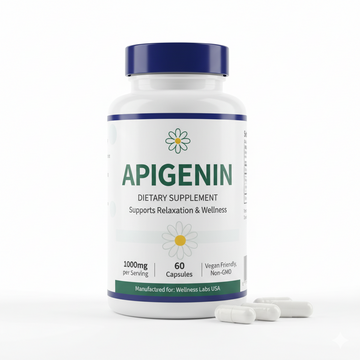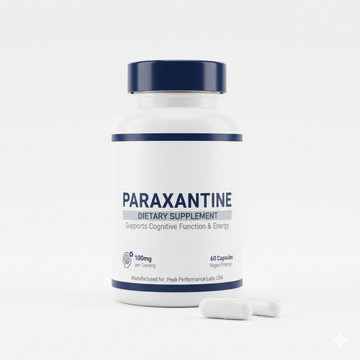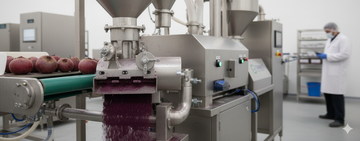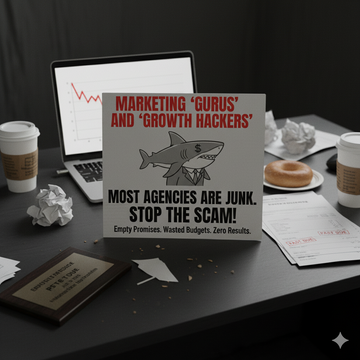Apigenin Supplement Manufacturing: The Complete Guide for Brand Owners and Manufacturers
Everything you need to know about creating premium Apigenin supplements in 2025

What Makes Apigenin So Special?
If you're in the supplement business, you've probably noticed Apigenin popping up everywhere lately. And for good reason. This naturally occurring flavonoid has basically exploded in popularity as consumers hunt for better sleep aids, cognitive enhancers, and anti-inflammatory options that actually work.
Here's the thing though - knowing about Apigenin is one thing. Actually manufacturing a product that stands out? That's where most brands struggle. Between sourcing quality ingredients, nailing the formulation, and navigating regulations, there's a lot to get right. That's exactly what we're covering in this guide.
The Fascinating History Behind Apigenin
How Ancient Cultures Used This Compound (Without Knowing It)
People have been using Apigenin for literally thousands of years - they just didn't call it that. The compound shows up in high concentrations in chamomile, which ancient Egyptians, Romans, and Greeks all swore by for sleep and digestive problems.
The Egyptians actually dedicated chamomile to their sun god. They used it for everything from fevers to cosmetics. Romans reached for it when dealing with headaches or liver issues. Over in medieval Europe, chamomile made it onto the list of "nine sacred herbs" and you'd find it growing in just about every monastery garden.
Traditional Chinese Medicine practitioners have been using Apigenin-rich herbs for centuries too, mainly to calm the mind and help with inflammation. Pretty impressive track record, right?
When Science Caught Up
Scientists isolated and identified Apigenin as its own compound back in the early 1900s as analytical chemistry got more sophisticated. But we didn't really understand HOW it worked until the 1990s and 2000s, when researchers figured out it interacts with GABA receptors in the brain. That's what gives it those calming properties everyone talks about.
So now we've got this perfect situation where ancient wisdom meets modern science. You can offer your customers an ingredient that's been used safely for millennia, backed up by actual research. That's a pretty compelling story for any brand.

Why Everyone's Talking About Apigenin Right Now
Look, if you're going to manufacture an Apigenin product, you need to understand what actually makes it valuable. Let's break down the real benefits:
Sleep and Relaxation (The Big One)
This is where Apigenin really shines. It binds to benzodiazepine receptors in your brain, which creates that calming effect people love - but without the dependency issues you get with prescription sleep meds. That's huge for consumers who are tired of melatonin or worried about getting hooked on pharmaceuticals.
Brain Health and Cognitive Function
The research on Apigenin and brain health is pretty interesting. It works through multiple pathways - antioxidant activity, supporting healthy inflammation response in neural tissue, that sort of thing. This opens up opportunities in the nootropics space, which is growing like crazy right now.
Natural Anti-Inflammatory Support
Studies show Apigenin can support your body's natural inflammatory response. That makes it valuable for recovery products and general wellness formulas.
Powerful Antioxidant Action
As a flavonoid, Apigenin is really effective at neutralizing free radicals and supporting cellular health. Perfect for anti-aging brands or longevity-focused products.
Mood Balance
Newer research suggests Apigenin might help with healthy mood balance too. Great addition to stress-relief or mood-support formulas.
Nitric Oxide Production and Cardiovascular Support
One of the lesser-known but increasingly studied benefits of Apigenin is its potential to support nitric oxide (NO) production in the body. Nitric oxide is crucial for healthy blood flow, vascular function, and cardiovascular health.
Research suggests that Apigenin may help support endothelial nitric oxide synthase (eNOS) activity, which is the enzyme responsible for producing nitric oxide in blood vessel walls. This mechanism makes Apigenin particularly interesting for brands targeting:
- Athletic Performance: Better blood flow means improved nutrient and oxygen delivery to muscles
- Cardiovascular Health: Nitric oxide helps maintain healthy blood pressure and vascular function
- Recovery Support: Enhanced circulation can support faster recovery after workouts
- Men's Health: Nitric oxide plays a role in various aspects of male wellness
This positions Apigenin as a valuable ingredient not just for sleep and cognitive products, but also for pre-workout formulations, cardiovascular support supplements, and comprehensive wellness stacks. It's a differentiator that many competitors aren't highlighting yet.
Here's something wild: The global sleep supplements market is projected to hit $52.7 billion by 2030. And natural ingredients like Apigenin are leading that charge. (Source: Grand View Research, 2024)
Sourcing Apigenin: What You Really Need to Know
Sourcing is honestly where most brands either nail it or fall flat. The quality of your raw materials will make or break your product. Here's what actually matters:
Where Does Apigenin Come From?
Chamomile Extract (The Most Popular Choice)
Most manufacturers go with chamomile because it's cost-effective and consumers already know it. Standard chamomile extracts contain about 1.2-1.5% Apigenin, though you can find specialized extracts with 3-5%.
Why it's good: People recognize chamomile. It's gentle on digestion. You get multiple beneficial compounds, not just Apigenin.
The catch: Apigenin content can vary, so you need proper standardization.
Best for: Sleep products, calming blends, multi-ingredient formulas.
Parsley Extract (The Alternative Option)
Parsley has solid Apigenin levels and gives you a different angle for marketing.
Why it's good: High Apigenin concentration, extra flavonoids.
The catch: Not as well-known to consumers as chamomile.
Best for: Antioxidant formulas, detox products.
Celery Seed Extract
Another viable source, especially if you're targeting cardiovascular or joint health markets.
Pure Apigenin (The Premium Option)
This is 98%+ pure Apigenin - either synthetic or isolated from plants.
Why it's good: Precise dosing every time. Consistent potency. Smaller capsules needed.
The catch: More expensive. You lose the synergistic compounds from whole plants.
Best for: Premium products, nootropic stacks, clinical-grade formulations.
Quality Checks You Can't Skip
When you're vetting suppliers, make sure they provide:
- Certificate of Analysis (CoA) with HPLC testing that verifies actual Apigenin content
- Heavy metals testing - lead, cadmium, mercury, arsenic
- Microbial contamination screening
- Pesticide residue testing (especially critical if you're going organic)
- GMO-free certification when applicable
- Organic certification if you're making that claim (USDA, EU Organic, etc.)
Where in the World Should You Source From?
Geography matters more than you might think:
European sources (especially German and Hungarian): Generally preferred for chamomile. Stricter oversight, which means more consistency.
Egyptian sources: Egypt's been growing chamomile forever. Competitive pricing, solid traditional knowledge.
Chinese sources: Usually the most cost-effective, but you'll want rigorous quality verification. Don't skip the testing.
US-grown: Shorter supply chain, easier to trace, and you can market it as a premium domestic ingredient.

Formulation Strategies That Actually Work
Creating an effective Apigenin supplement isn't just about dumping powder in a capsule. You need to think about dosing, absorption, and what else goes in the formula.
How Much Apigenin Should You Use?
Based on what's working in the market right now:
- Sleep products: 50-100mg Apigenin per serving (usually from 500-1000mg chamomile extract)
- Cognitive enhancement: 25-50mg for nootropic stacks
- Antioxidant support: 20-50mg as part of broader formulas
- Standalone products: 50-200mg pure Apigenin for clinical-style offerings
The Absorption Challenge
Here's a problem: Apigenin doesn't dissolve well in water, which can limit how much actually gets absorbed. Smart manufacturers get around this with:
- Lipid-based delivery: Combining it with healthy fats or phospholipids
- Micronization: Making the particles smaller so they absorb better
- Phytosome technology: Binding Apigenin to phosphatidylcholine
- Smart stacking: Adding piperine (black pepper extract) or quercetin to boost absorption
Popular Apigenin Combination Options
Apigenin works well on its own, but many brands are finding success combining it with complementary ingredients. Here are some approaches worth considering:
Sleep Support Combinations
Common ingredients paired with Apigenin for sleep formulations include L-Theanine, Magnesium Glycinate, and sometimes low-dose Melatonin. Talk to your formulation team about the right ratios for your target market.
Cognitive Support Combinations
For focus and calm, Apigenin pairs well with adaptogens like Rhodiola Rosea, along with L-Theanine and mushroom extracts like Lion's Mane.
Antioxidant Support Combinations
When targeting antioxidant support, brands often combine Apigenin with other flavonoids like Quercetin, plus Resveratrol and Vitamin C for synergistic effects.
Choosing the Right Format
When working with an experienced capsule manufacturer, you've got options:
- Vegetarian Capsules: Most popular choice for Apigenin. Appeals to the widest audience.
- Tablets: More cost-effective for higher doses. Great for complex stacks. (Check out our breakdown on tablets vs capsules)
- Powder Blends: Growing fast. People like customizing their doses and adding them to smoothies.
- Liquid Formulations: Premium positioning with potentially better absorption.
- Gummies: Tricky because Apigenin tastes bitter, but doable with the right flavor masking.

Finding the Right Manufacturing Partner
Your manufacturer can make or break your brand. Seriously. Here's what to look for:
Non-Negotiable Requirements
- GMP Certification: If they don't have this, walk away. Quality and compliance depend on it.
- Third-party Testing: You need independent verification of what's actually in your products.
- Botanical Extract Experience: Not all manufacturers know how to work with plant extracts properly.
- Formulation Support: The best partners help you optimize for both efficacy and cost.
- Flexible MOQs: Critical when you're testing the market or just starting out.
- Full-service Capabilities: From formulation through marketing support.
Why Brands Choose Turnkey Health & Beauty
At Turnkey Health & Beauty, we've built our reputation on creating supplements that actually perform in the market. Here's what sets us apart for Apigenin manufacturing:
- Real Formulation Expertise: Our team doesn't just mix ingredients - we create effective, science-backed formulations that deliver results.
- Quality Sourcing Network: We've spent years building relationships with verified Apigenin suppliers worldwide.
- Advanced Facility: State-of-the-art equipment for capsule manufacturing, tablets, and more.
- Startup to Scale: Whether you're testing with 1,000 units or ramping up to 100,000, we've got you covered.
- True Turnkey Service: We handle concept, formulation, manufacturing, compliance, packaging - everything.
- Regulatory Know-How: We'll make sure you meet all FDA and industry requirements.
- Custom Formulation: Work directly with our experts to create unique formulations that differentiate your brand.
Here's our philosophy: We don't just manufacture supplements - we build brands. That means formulation expertise, quality manufacturing, AND marketing support to help your Apigenin products actually succeed in the marketplace.
Regulatory Stuff You Can't Ignore
Nobody loves dealing with regulations, but getting this wrong can sink your brand fast.
What the FDA Says (US)
- Apigenin is generally recognized as safe (GRAS) when it comes from food sources like chamomile
- You have to comply with FDA dietary supplement regulations (21 CFR Part 111)
- Structure/function claims need proper substantiation and disclaimers
- You absolutely cannot make disease treatment claims
- Adverse event reporting is required
What You Can (and Can't) Say on Your Labels
These claims are fine:
- "Supports relaxation and restful sleep"
- "Promotes healthy sleep patterns"
- "Supports cognitive function"
- "Provides antioxidant support"
These will get you in trouble:
- "Treats insomnia"
- "Cures anxiety disorders"
- "Prevents cancer"
Selling Internationally?
- European Union: You need to comply with EU Novel Foods Regulation, though chamomile extracts usually have enough history of use.
- Canada: Requires a Natural Product Number (NPN) or exemption.
- Australia: TGA regulates supplements - you may need AUST L listing.

Marketing Your Apigenin Products
Who's Actually Buying This Stuff?
- Sleep-Seekers: People desperate for natural alternatives to prescription sleep aids
- Biohackers & Nootropic Users: Optimization-obsessed folks looking for cognitive edge
- Stress & Anxiety Sufferers: Anyone seeking natural calming support
- Health Optimizers: Wellness enthusiasts into longevity and cellular health
- Athletes: People interested in recovery and inflammation management
Marketing Angles That Convert
- "Ancient Wisdom, Modern Science": Play up chamomile's historical use alongside contemporary research
- "The Natural Sleep Solution": Position as safer alternative to melatonin or pharmaceuticals
- "GABA Support Without Drowsiness": Highlight the mechanism without the grogginess
- "The Missing Piece in Your Stack": Target nootropic users optimizing their regimens
Content That Works
- Sleep optimization guides featuring Apigenin
- Head-to-head comparisons: Apigenin vs. Melatonin, Apigenin vs. Magnesium
- Nootropic stack building guides
- Educational content on flavonoids and plant compounds
- Customer testimonials with actual sleep tracking data
Want more marketing strategies? Check out our complete guide for supplement brands.
The Money Side: Costs and Pricing
What Affects Your Manufacturing Costs
- Raw Materials: Pure Apigenin runs $80-200/kg vs. Chamomile Extract at $20-60/kg
- Formula Complexity: Single ingredient is cheaper than multi-ingredient stacks
- Format: Capsules vs. tablets vs. powders all have different costs
- Volume: Bigger orders = better unit economics
- Testing: Third-party verification adds cost but builds serious trust
- Packaging: Stock bottles are cheaper, custom branding costs more but sells better
What Products Are Actually Selling For (2025)
- Budget Tier: $12-18 for 60 capsules with 50mg Apigenin from chamomile extract
- Mid-Tier: $22-32 for 60 capsules with 50-100mg pure Apigenin or premium stack
- Premium Tier: $35-55 for 60 capsules with high-potency Apigenin and bioavailability enhancement
How to Maximize Your Margins
- Start with chamomile extract to test the market, upgrade to pure Apigenin once you're established
- Multi-ingredient formulations justify higher prices
- Bioavailability enhancement creates real differentiation
- Subscription models give you predictable revenue
- Bundle complementary products (sleep, cognitive support, stress relief)
Quality Control That Actually Matters
Any reputable manufacturer should be doing this testing at minimum:
Raw Material Testing
- Identity Testing: HPLC verification that Apigenin is actually present
- Potency Analysis: Measuring exactly how much Apigenin you're getting
- Purity Testing: Finding adulterants or contaminants
- Microbial Testing: Total plate count, yeast, mold, pathogens
- Heavy Metals: ICP-MS testing for lead, cadmium, arsenic, mercury
- Pesticide Residues: Multi-residue screening
Finished Product Testing
- Potency Verification: Making sure what's on the label is actually in the bottle
- Dissolution Testing: Confirming capsules/tablets release properly
- Stability Testing: Determining actual shelf-life
- Microbial Limits: Final safety verification
Third-Party Certifications Worth Getting
- NSF Certified for Sport: Essential if you're targeting athletes
- USP Verified: Premium quality assurance that customers recognize
- Informed Choice: Another sports nutrition standard
- Non-GMO Project: Consumers increasingly care about this
- USDA Organic: Premium positioning for botanical sources
Where This Market Is Headed
Opportunities We're Seeing
- Personalized Sleep Formulations: Custom blends based on genetic testing or sleep tracking data
- Cannabinoid Combinations: Apigenin + CBD formulations for enhanced relaxation
- Advanced Delivery Systems: Liposomal Apigenin, time-release formulations
- Beauty-from-Within: Apigenin in skin health and anti-aging supplements
- Performance Recovery: Post-workout formulations using Apigenin's anti-inflammatory properties
- Mental Health Focus: Anxiety-support formulations featuring Apigenin
What the Numbers Say
Industry analysts are predicting 8.2% annual growth for natural sleep supplements through 2030. Apigenin-based products are grabbing increasing market share as people look for alternatives to melatonin.
How to Actually Launch Your Apigenin Supplement
The Step-by-Step Process
- Market Research: Figure out who you're selling to and who you're competing against
- Formulation Development: Work with experts to create something effective and different
- Choose Your Manufacturer: Pick someone qualified with actual experience
- Get Compliant: Make sure labels, testing, and documentation check all the boxes
- Brand & Package: Create compelling identity and packaging that stands out
- Production Run: Start with your initial batch and quality testing
- Launch Marketing: Digital marketing, influencer partnerships, retail distribution
- Iterate: Gather customer feedback and optimize based on real data
Mistakes That'll Cost You
- Going with the cheapest manufacturer without verifying quality
- Skimping on testing protocols - this will bite you eventually
- Overcomplicating formulations without actual clinical rationale
- Making health claims you can't back up legally
- Not educating your customers properly about the product
- Failing to differentiate from generic chamomile products
Common Questions About Apigenin Manufacturing
What's the minimum order quantity?
It varies by manufacturer. At Turnkey Health & Beauty, we work with brands at all stages - from startup quantities to massive production runs. Hit us up to talk about your specific needs.
How long does manufacturing actually take?
Figure 8-12 weeks for initial formulation, testing, and production. Rush orders might be possible depending on how complex your formula is.
Can I create my own proprietary blend?
Absolutely. Our formulation team can help you develop unique combinations that make your brand stand out.
What certifications should I demand from suppliers?
At minimum: Certificate of Analysis with HPLC testing, heavy metals testing, microbial testing, and pesticide screening. Organic certification is valuable if you're going premium.
Is Apigenin actually safe for daily use?
Apigenin from food sources like chamomile has thousands of years of safe use. That said, you should always include proper labeling disclaimers and recommend consulting healthcare professionals.
How's Apigenin compare to melatonin for sleep?
Apigenin works through GABA receptors instead of hormonal pathways. Different mechanism entirely, without the tolerance or hormone concerns some people worry about with melatonin.
More questions? Check our full FAQ page.
Ready to Build Your Apigenin Brand?
The Apigenin market is wide open right now for brands that know what they're doing. But success takes more than just sourcing an ingredient - you need real expertise in formulation, quality manufacturing, regulatory compliance, and smart positioning.
Turnkey Health & Beauty offers complete Apigenin manufacturing services designed to help your brand actually win in the market:
- Expert formulation development that's backed by science
- Premium sourcing from suppliers we've personally verified
- GMP-certified manufacturing facilities with cutting-edge equipment
- Flexible production from startup scale to enterprise volume
- Complete regulatory compliance support
- Marketing and branding help
- Ongoing optimization and support
Whether you're launching your first supplement or expanding an existing line, we're ready to help you create Apigenin products that stand out and deliver real results.
Let's talk. Contact Turnkey Health & Beauty to discuss your Apigenin manufacturing needs. Let's build something that works.
More resources from our team:



